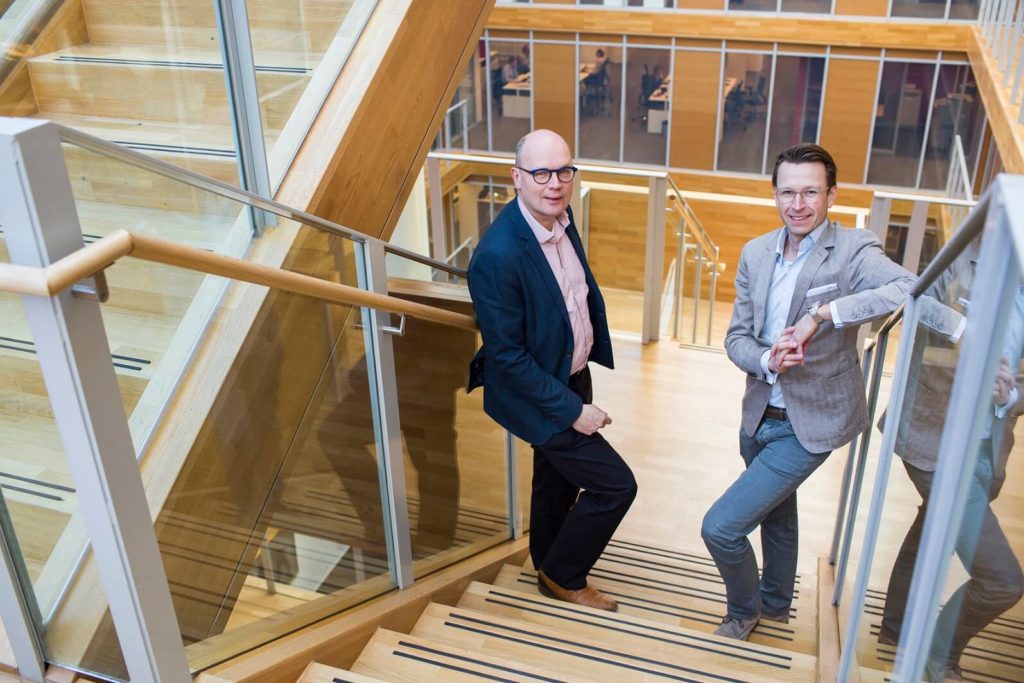One network for all Dutch local councils
At the request of local councils, the Dutch association of local councils ‘Vereniging van Nederlandse Gemeenten’ (VNG) is building a new data network in conjunction with Logius and others for all local councils in The Netherlands. Project leaders Peter Klaver (left on the photo) and Jeroen Schuuring (right on the photo) from VNG explain why.
Local councils are at the heart of society and their services and business operations digitise. In this respect, they are gradually working more intensively alongside and in cooperation with other governments. A data network in which they can access and share information is therefore essential. This was the reason why local councils decided at the general members meeting of the VNG to create one common digital infrastructure: the municipal common infrastructure called ‘Gemeentelijke Gemeenschappelijke Infrastructuur (GGI)’. A joint network also forms part of this: the GGI-Network.
Total control
Jeroen: “For optimal service and effective implementation, local councils must be able to access and share their data easily, securely and reliably. Since more and more data, tools and systems are external, they want to do that over a secure network. By connecting to the Logius Diginetwerk[1], to which many other governments are already connected, the local councils can fulfil that requirement. In addition, the local councils have control and together they can decide who is given access to this network, which services are offered and what conditions are attached to this. They therefore really do have total control.”
Flexibility in switching
The GGI-Network is already being built. “The first tests are planned for April”, says Peter, “and local councils will be able to connect before the summer. However, this won’t happen with a ‘big bang’. In principle, all Dutch local councils can take part, but they will decide when they wish to switch; this will also depend on, for example, contracts with their current suppliers. Use of the GGI-Network will therefore ramp up gradually.”
Secure use of the cloud
The secure exchange of information with other governments is not the only purpose of the new network. “Local councils and their suppliers have been eager to use the cloud for some time”, says Jeroen, “but they are justifiably cautious about doing that alone. Local councils want to ensure that their information security is properly safeguarded.” It is much safer to use the cloud jointly, through the GGI-Network. “As the local councils work together, they can pool their knowledge and jointly set conditions for cloud services that can be delivered via the GGI-Network to local councils and supply chain partners. They reach agreements about this with the ICT market. To improve digital resilience further still, the GGI contains various tools to actively secure the data traffic.”
Joint organisation
The local councils plan to do more jointly than simply working with a common infrastructure. Peter: “Local councils have started a movement of ‘Joint Organisation’, where more and more intensively, they will work towards improving the services and information provision. Jointly, with the support of VNG, local councils will develop common agreements, tools and standards. These will vary substantially and range from online services, such as digital registration of death, the standardisation of processes through to submitting joint tenders.” The GGI-Network will make ‘Joint Organisation’ easier.
[1] Diginetwerk connects private government networks
